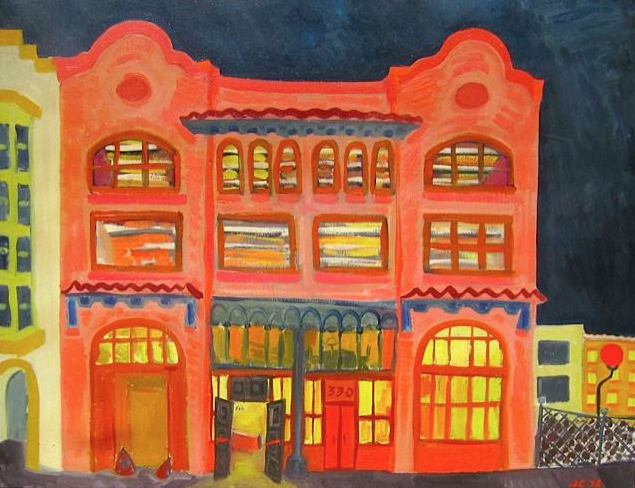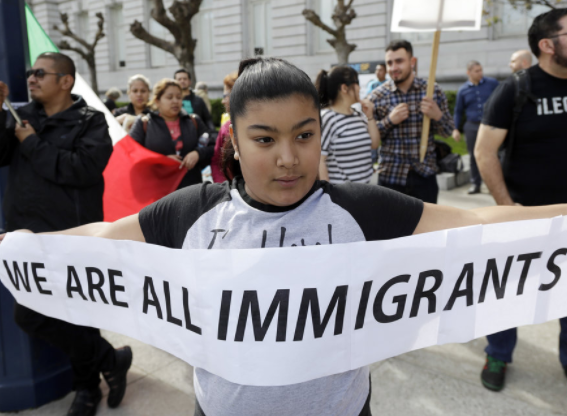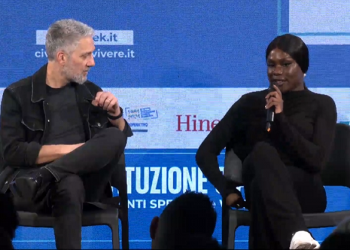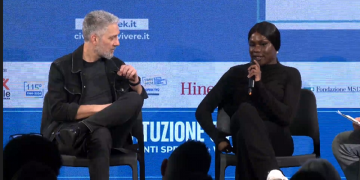BY ALLEN ROSKOFF | New York City is now the world’s most expensive city. As a result we now have levels of homelessness not seen since the Great Depression of the 1930s. This past August 58,780 homeless New Yorkers with more than 42,000 children were counted by the city of New York. This issue is haunting the de Blasio administration and may jeopardize his bid for re-election. While Rudy Giuliani called for an exile of the homeless and others see them as an inconvenience and unsightly, a growing number of New Yorkers are aghast at the human tragedy. New York City is fortunate to have the Coalition for the Homeless and the Ali Forney Center, a safe haven for gay and transgender youth. One of the major causes of homeless youth is the religious indoctrination of their parents. Religious bigotry has caused parents to discard and disown their very own LGBT youth.
Lost In America is a feature documentary that follows the journey of its director, Rotimi Rainwater as he travels the country meeting homelessness along the way. This film takes an deep look at the pandemic highlighting human trafficking, the foster care system, youth rejected because of their sexuality, domestic violence, abuse, and more. It also examines what many organizations, politicians and other public figures are doing (or not doing) to help these youth.”
The new trailer was released last Friday, and it features both youth and celebrity interviews, including rock and roll superstar Jon Bon Jovi and American business magnate Russell Simmons. According to the trailer over 1 million youth end up on the streets every year and more than 5,000 will die.
In it Rotimi talks about his own experiences living on the streets in Orlando, Florida. Now 44 years old, he spent over nine months living on the streets. This period in his life led him to create the feature film Sugar, and now Lost in America.
In 2013, Rotimi screened his film Sugar for a group of homeless youth in San Diego, California. Rotimi says of the experience, “Creating Sugar was supposed to be a journey that would help me get over my past, but meeting thehomeless youth who came to watch the film did something else. It ended up giving me a unique look at the state of homelessness in America and forced me to face my own issues of abandonment and pain that up until that point, I’d managed to hide. Honestly, it broke my heart.”
While Lost in America includes a long list of reasons youth find themselves on the streets, it takes a particularly in-depth look into the lives of LGBTQ youth. Several of the characters fall under this acronym, showing some of the additional struggles that an LGBT youth might face when living on the streets, or even how their sexual orientations are often times the root cause for theirhomelessness.
“It’s all too common that a youth is kicked out of his/her home after coming out. We felt that it was important to include those stories in the film, to hopefully promote a dialogue around acceptance,” says actor Mike C. Manning, a producer on the film, who also has a history of volunteering with organizations aimed at assisting at-risk and homeless youth. “We want to show America what these kids go through, in hopes that they recognize the need for all of us to rally in a big way and create new tactics to assist the growing populations of youth on the streets, to not only combat the causes of homelessness, but also programs to get youth off the streets and on their own two feet.”
Youth interviewed for the film include those like Calub (a transgender youth who ran away after facing violence from his father), or Denard (a gay youth kicked out of his family and church community after his mother linked his sexuality to ‘gay demons’). Conversely, the crew has interviews from youth like Grayson who, after coming out to his Mormon family as gay and ultimately transgender, was accepted and embraced by his parents and church community.
“We want to tell an honest story, to show America what these youth are really going through, and ultimately push for change,” says Rainwater. One fact that I found specifically troubling on the Lost In America website, cited from the state of Seattle’s government website, is that “one out of three teens on the streets will be lured into prostitution within 48 hours of leaving home.” Another statistic on the film’s website is that “anywhere from 1.6-2.8 youth run away or arehomeless every year.” To me, this problem seems to be of epic proportions, affecting many within our country, youth that find themselves living on the streets for a variety of reasons, that need our help.
The trailer also includes an interview from Senator Patrick Leahy (D-VT), where the Senator talks about the need to protect these children like members of our own families. Whether these youth are LGBT, or find themselves on the streets because of other circumstances, it’s clear to me that we need films like this to expose the public to harsh realities that may otherwise be easier to ignore, and to use story to push for positive change. I hope to see that with Lost In America.
More information on the film and the new trailer can be found at www.lostinamericafilm.com.











